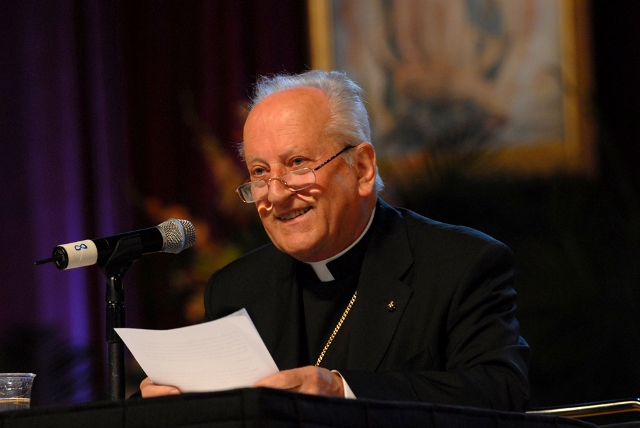 From the Tablet
From the TabletProfound questions are raised by the way Cardinal Franc Rodé, head of the Vatican department that deals with religious orders, admonished the Society of Jesus for failing to “think with the Church”. In a sermon at the start of their 35th General Congregation in Rome, Cardinal Rodé told the assembled Jesuits of his “sadness and anxiety” at the Society’s recent record, urging greater fidelity to the hierarchy. Certainly, relations between local Jesuit priests and diocesan bishops have sometimes been adversarial. Given the Church’s episcopal structure, religious orders that stand outside that structure will experience conflicts with it. They can develop a mindset that sees things differently from local bishops’ conferences.
Yet Ignatius Loyola made “thinking with the church” a special obligation ( A founding principle ) on members of his new order. The question appears to be - does “Church” ( I am sure "New Models of Church" are being constructed at this very moment ) equal “hierarchy”?
Through a series of strategic appointments, the Vatican had steered the American hierarchy away from the more progressive era represented by Cardinal Joseph Bernardin and Archbishop Rembert Weakland, towards a more conservative model. The new mood was to confront the Church’s internal dissenters, not debate with them.
It is no coincidence that Jesuits make up the bulk of theologians investigated by the Congregation for the Doctrine of the Faith, ( understatement ) usually for exploring and engaging too far from the official position.
The real issue raised by Cardinal Rodé’s intervention, which it will be vital to thrash out, is whether a duty to conform to the thinking of the hierarchy, particularly if imposed by disciplinary measures, might have such a chilling effect as to discourage all theological research, good as well as bad. ( I will not clean my room, supper is not important to me )
"To Cardinal Rodé, any such conflicts [i.e. between bishops and Jesuits] must be resolved in favour of the bishops, who are sacramentally commissioned to think the Church’s thoughts."
ReplyDeleteHa! "Sacramentally commissioned to think the Church's thoughts"?? Gee that's a new twist on an old misunderstanding, eh!